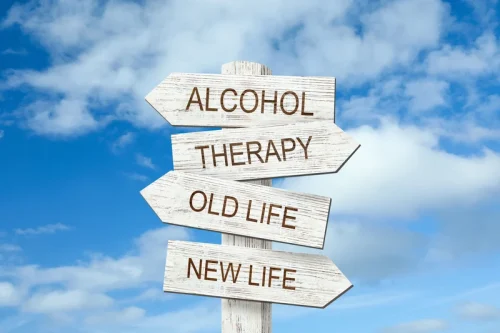
At Healthgrades, our Editorial Team works hard to develop complete, objective and meaningful health information to help people choose the right doctor, right hospital and right care. Our writers include physicians, pharmacists, and registered nurses with firsthand clinical experience. All condition, treatment and wellness content is medically reviewed by at least one medical professional ensuring the most accurate information possible. People with alcohol-related dementia may experience painless vision loss, gait abnormalities, or mental status changes such as apathy and a lack of speech. Some people with advanced cases of the condition may experience hallucinations and irreversible and severe memory impairments. The condition is also referred to as alcoholic dementia because of its ability to cause severe memory loss and induce hallucinations and behavioral changes, which are all hallmarks of dementia.
Effects on the Brain
Another hypothesis is that thiamine (vitamin B1) deficiency is primarily responsible for the development of ARD. Individuals with alcohol use disorders are at particularly high risk of thiamine deficiency, not only from poor dietary nutrition but because alcohol directly compromises thiamine metabolism 16. Not all individuals with WE show the triad of neurological symptoms, and the severity of signs is likely related to the extent of the underlying pathology 17. To increase diagnostic accuracy of WE, refined operational criteria specify a minimum of two symptoms for diagnosis, a guideline recently endorsed by the European Federation of Neurological Societies (EFNS) 18,19. Long-term outcomes of WE can include development of a syndrome of profound memory impairment – Korsakoff syndrome (KS) – that appears to be related to additional disruption to diencephalic and hippocampal circuitry. As KS shares similar pathological substrates and often follows an episode of WE, it is commonly referred to as the Wernicke-Korsakoff syndrome 1.

Personalized Plan of Care
CRT promotes improvements in cognitive abilities and well-being for individuals with alcohol-related cognitive impairments. Social support, such as participation in counseling and rehabilitation programs, also encourages long-term recovery and bolsters treatment outcomes. Alcoholic dementia, or alcohol-related dementia, is a severe form of alcohol-related brain damage caused by many years of heavy drinking. It can lead to dementia-like symptoms, including memory loss, erratic mood, and poor judgment. This study suggests that heavy drinkers and former heavy drinkers have much higher odds of is alcohol dementia real brain damage related to brain diseases compared to those who don’t drink.
Diagnosing alcohol-related dementia and treatment options
- Although some studies have investigated alcohol and dementia more broadly, there are still substantial gaps in our understanding.
- This study was a cross-sectional population-based autopsy study conducted in Brazil.
- A treatment center will attempt to verify your health insurance benefits and/or necessary authorizations on your behalf.
In addition to those deaths, 32 people in the U.S. are killed every day in vehicle crashes involving a driver who is impaired by alcohol—that’s one death every 45 minutes. Cognitive remediation therapy based management programs have been investigated in very few studies in alcohol-dependent patients (82, 84) with encouraging results. In spite of recognition, focus on cognitive strategies for enhancing cognition is surprisingly less and more studies are needed to evaluate the benefits. A notable aspect of alcoholic dementia is the impact on the frontal lobes of the brain, which are crucial for planning, controlling impulses, and executing tasks. This results in difficulties with problem-solving, planning, organizing, and controlling emotions. These may include treatment at an addiction treatment center, the support of a caregiver to assist with daily activities, or transitioning into a senior living community that offers specialized care by trained professionals.

They may also not be able to recall knowledge and events, such as where they lived previously or places where they have been on holiday. Find out about Alcohol-related ‘dementia’ including symptoms, diagnosis, treatment, support and rehabilitation. You’ll need regular check-ups with your healthcare provider They’ll monitor your brain for any changes and adjust your treatments as needed. The kind of drinking that causes alcohol-related dementia is different from an occasional cocktail, beer or glass of wine. The American Medical Association recommends that males have no more than two standard-sized drinks per day, and no more than 14 in a week. Females should have no more than one standard-sized drink a day, and seven or fewer drinks each week.


When a person starts drinking more than around 25 units per week on a regular basis, it may start to affect their ability to think and function properly. Consider attending a support group for sobriety such as Alcoholics Anonymous (AA). Going to meetings can hold you accountable for quitting drinking and improving your health. The age of onset of https://ecosoberhouse.com/ alcohol-related dementia varies, but it’s often seen in middle-aged adults around 40 to 50 years old. However, it can occur earlier or later depending on the amount of alcohol a person consumes.
AddictionResource fact-checks all the information before publishing and uses only credible and trusted sources when citing any medical data. Addiction Resource does not offer medical diagnosis, treatment, or advice. Only trained and licensed medical professionals can provide such services. If you or anyone you know is undergoing a severe health crisis, call a doctor or 911 immediately. According to a study, the five-year survival rate for someone with alcohol-related dementia is 53.4% for men and 63.4% for women.
Alcohol addiction treatment
About 7 years ago he Sober living home started going through horrible mood swings and would talk to himself about really off the wall things. I had to leave him because he wouldn’t get help , but found help for him and have been in the picture for 2 years. It has been a very trying past 7 years Thank you for letting me share.
